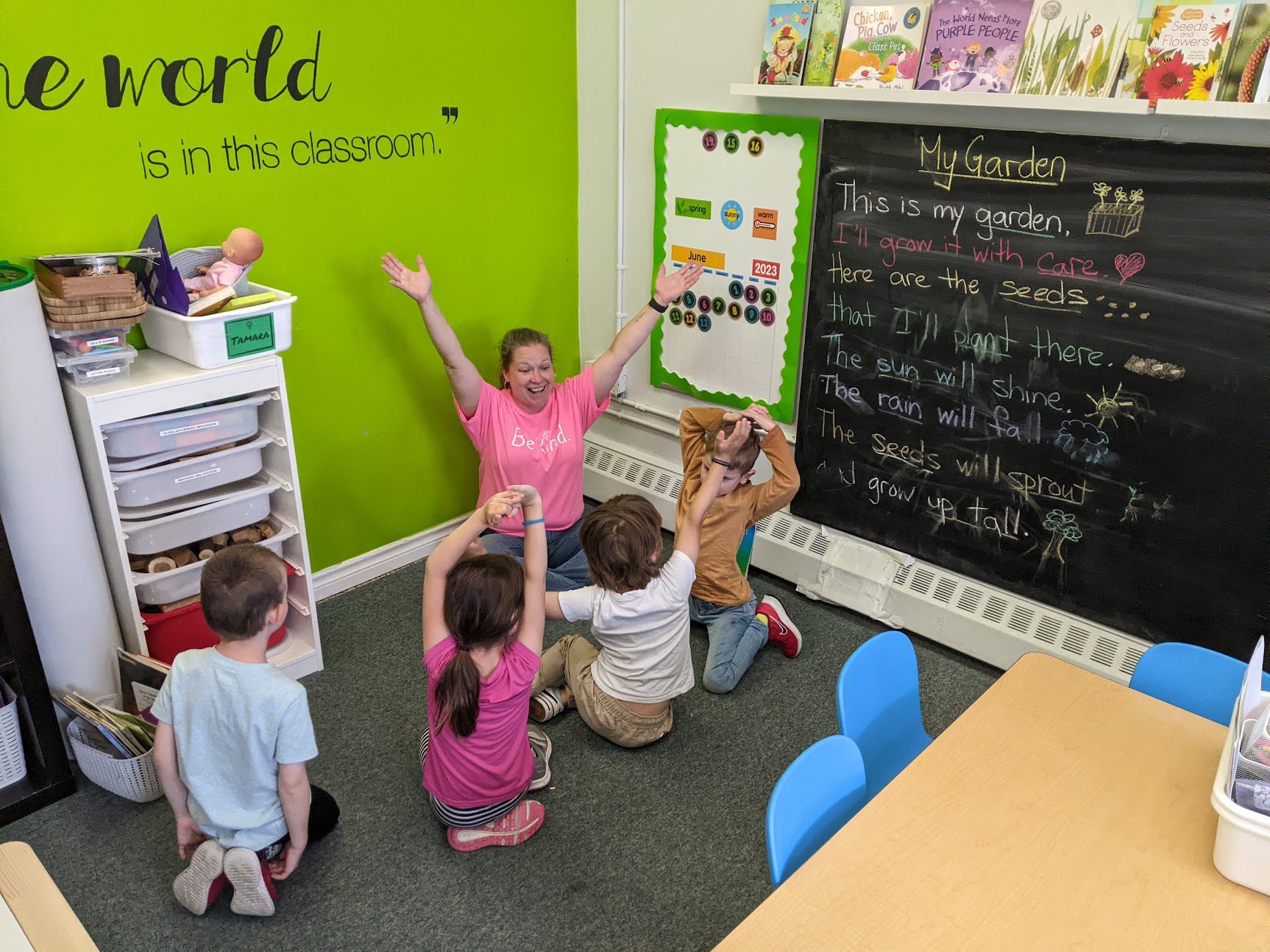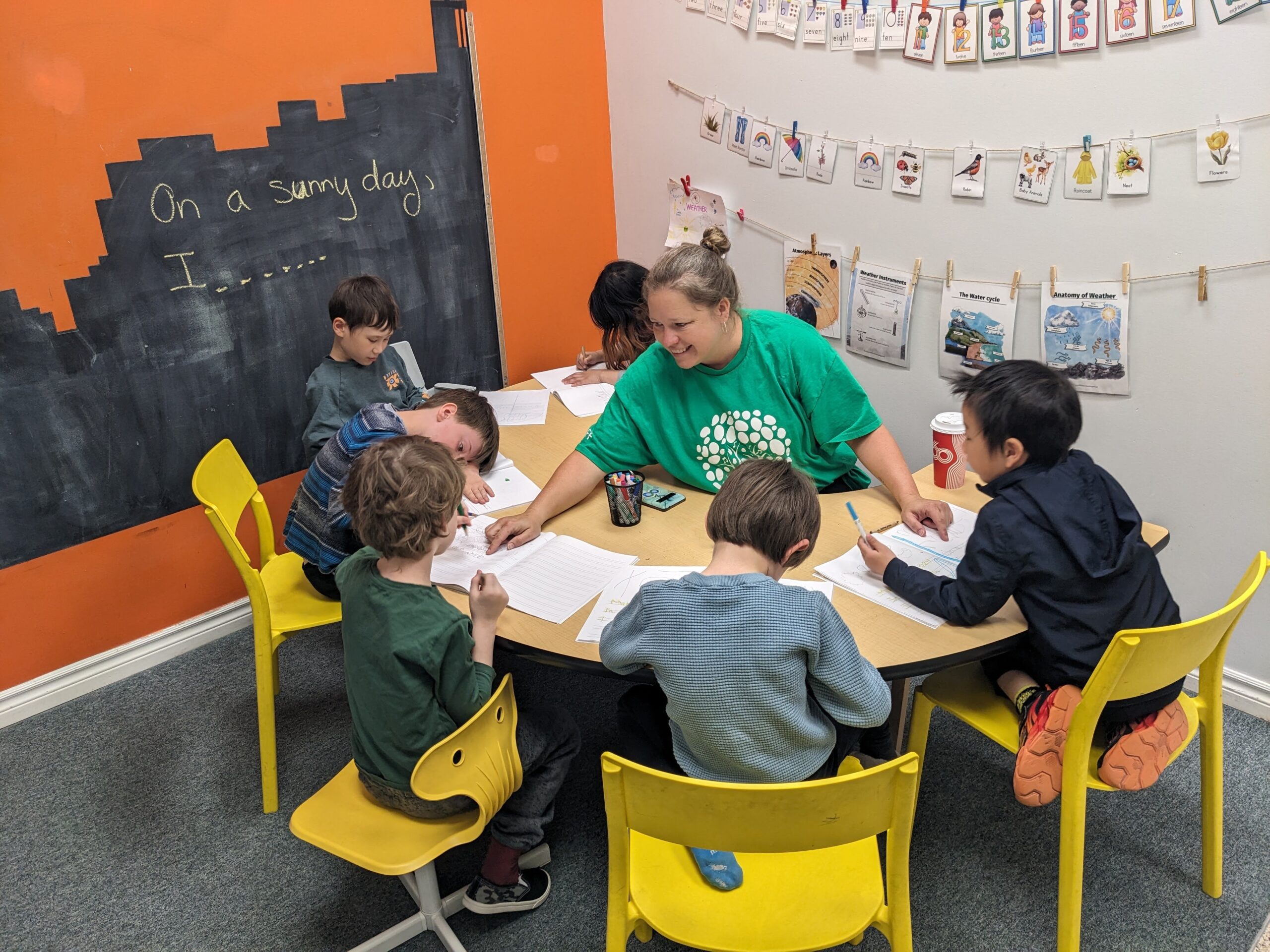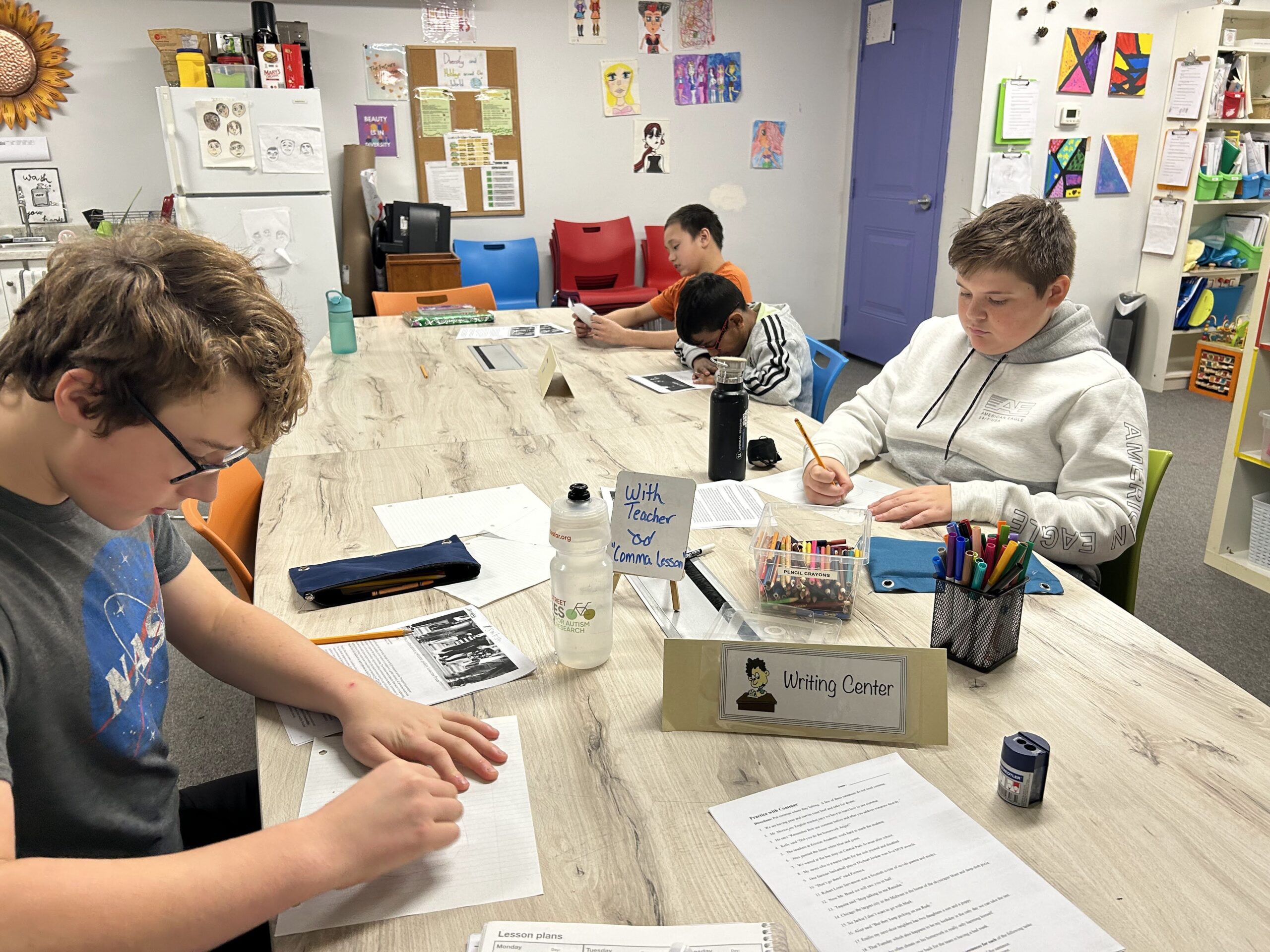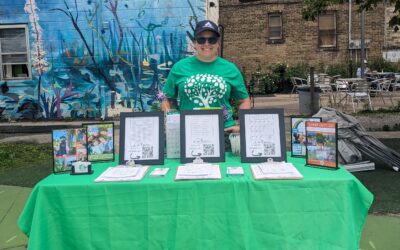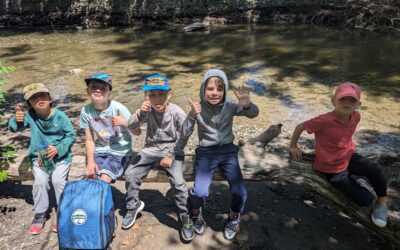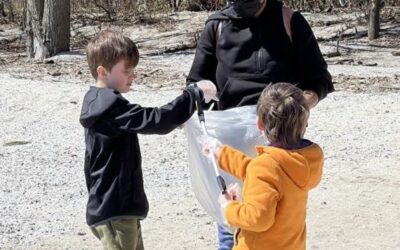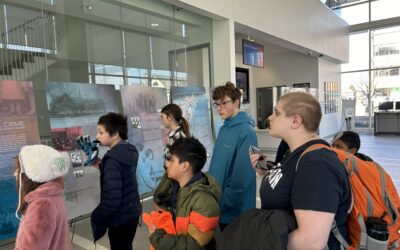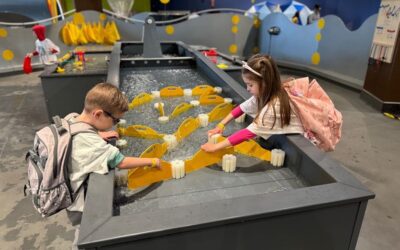Small Classes
6:1 ratio in all classes, allowing for personalized and enriched learning opportunities.
Outdoor Education
At least 2hrs every day is dedicated to learning outside in our community and natural surroundings.
Arts-Enriched Curriculum
Enhanced learning through the Arts with daily dance, music, movement, art and creative expression.
Experiential Learning
Hands-on learning and site-based learning.
Learning Exceptionalities
Personalized instruction to support all learners, including Gifted, LD and Mental Health needs.
STEAM
Integrated learning through Science, Technology, Engineer, Arts and Math.
Kindergarten
The Oak Learners Kindergarten program lays a strong foundation for an enriching educational journey. Experienced educators spend time exploring literacy, numeracy, science and so much more with children through a natural and inquiry-based program. Students may attend part-time or full-time as they enter into the first stage of their elementary education.
Lower Elementary (Grades 1-4)
Each day brings new learning opportunities through an integrated and immersive approach to education in the primary grades. Ontario Curriculum content and skill achievement guidelines are covered and enriched through a holistic approach to learning in a project-based and mixed-grade inquiry learning model.
Upper Elementary (Gr 5-8)
Our research-based approach to skills-based teaching provides students with a strong preparation for the High School grades. Students are encouraged to become advocates for their own learning to build learner self-awareness, confidence and motivation. Cross-curricular curriculum and real-world projects integrate skills for learning and solidify Ontario Curriculum expectations.
Start the Admissions Process
We are currently accepting applications for the 2024-25 school year for all Grade Levels, JK through Grade 8.
Complete an Intake Questionnaire to begin the process today!

Curriculum
Progressive, interdisciplinary, inquiry-based programming in a student-driven, teacher-facilitated, alternative enrichment learning environment. Each learner goes through a cyclical process of identifying their unique strengths, needs, goals, and interests. Through collaboration with teachers, peers, parents and members of their community, they design an inquiry-based project to guide their learning over the course of a term.
Oak Learners’ progressive, interdisciplinary, inquiry-based programming brings new learning opportunities and experiences through an integrated and immersive approach to education. Ontario Curriculum content and skill achievement guidelines are covered and enriched through a holistic approach to learning in a 21st century environment.
Assessment
Students work together with teachers and peer-mentors to develop their individualized criteria for success and assessing their progress. Teachers track each students progress in alignment with Ontario curriculum standards, and at the end of each term, students, teachers and parents meet to conference, reflect and set goals for the next term. Reporting on assessment is designed for each student’s unique profile and will take place primarily through formal and informal student-led portfolio conferences.
Browse our 2023-24 School Year Brochure
Calendar
Our school year calendar runs 11 months and consists of 209 school days.
Registration & Fees
View tuition fees, forms and registration information.
Start the Admissions Process
We are currently accepting applications for the 2024-25 school year for all Grade Levels, JK through Grade 8.
Complete an Intake Questionnaire to begin the process today!

Oak Learners endeavours every day to inspire learning through an authentic skill-based curriculum. Our teachers nurture children’s natural curiosity about their world with student-centered experiences.
Many research studies over the past decade link children’s mental, emotional, physical, and spiritual health with time spent outdoors, experiencing nature. For example, students have been shown to have increased focus, confidence, self-esteem, and overall feelings of happiness and satisfaction with school.
At Oak Learners, we believe every child can be successful when they belong to a truly supportive educational community. Academic excellence is enhanced with 30-50% of our school day being integrated with immersive Outdoor Education. This means that academic subjects like Math, Literacy, Science, and Social Studies are taught, explored, and shared in an authentic way: in the natural environment.
Environmental Stewardship
Understanding the responsibility of caring for our local environment.
Navigation and Mapping
Observation and Inquiry
Sense of “Place” and Belonging,
Local Culture and Heritage


Calendar
Our school year calendar runs 11 months and consists of 209 school days.
Registration & Fees
View tuition fees, forms and registration information.
Start the Admissions Process
We are currently accepting applications for the 2024-25 school year for all Grade Levels, JK through Grade 8.
Complete an Intake Questionnaire to begin the process today!
Highlights from our School
Cognratulations to the Graduating Class of 2024!
This year, Oak Learners celebrated our inaugural Graduating Class and we are thrilled to wish Henry and Jackson the very best of success in the next phase of their educational journey.
Senior Students Overnight Trip to Blue Mountain
Grade Seven and Eight students from Oak Learners had the opportunity to spend 2 nights and 3 days at the Blue Mountain resort for their Senior Trip this year!
Supporting the Trans Canada Trail Care Day 2024
On Saturday, June 1, Oak Learners joined the Trans Canada Trail Team and the Waterfront Trail team for Trail Care Day 2024! Oak Learners was excited to provide activities for families, including a self-guided scavenger hunt on the Trail.
Oak Learners Launches the 2024 Summer Skill Boosters Program
Summer Skills Boosters at Oak Learners are intensive, one-week workshop experiences for students from Grades 1–12 in a variety of subject areas including math, literacy, study skills and more.
Oak Learners is Granted a Water Rangers Freshwater Testing Kit for World Oceans Week!
From June 1 to 9, 2024, Ocean Week is a time to engage in events, learning activities, and community initiatives that highlight the importance of our oceans and their connection to our daily lives. This year, Oak Learners was selected to receive the Ocean Week Canada Grant towards the purchase of a Freshwater Testing Kit from Water Rangers!
A visit to see the High Park Cherry Blossoms
This year, the much-anticipated Peak Bloom of the High Park Cherry Blossoms in Toronto occurred during the final week of April and our students took the opportunity to visit this spectacular showcase of nature at its finest despite the lower-than-seasonal temperatures.
Our Students join the Shoreline Cleanup at Colonel Sam Smith Park for Earth Day 2024
On Monday, April 22, the entire student body and staff team gathered at the shores of Colonel Samuel Smith Park to collect garbage in an effort to contribute to keeping our shoreline and park free of garbage.
Senior Students raise funds for their end-of-year trip!
Help our graduates fundraise for their end-of-year trip to Blue Mountain with our upcoming Bottle Drive and Bake Sale!
Middle School Students Honour Artists for Black History Month
This year for Black History Month, our Middle School Students at the Lake Shore Campus engaged in an exploration of black music, cultures, traditions, arts, etc. Each student then selected a black artist to learn more about and then designed and painted an artwork that paid homage to the artist they chose.
Student Visits to Lakeshore Grounds Interpretive Center in February 2024
Oak Learners Middle School students had the opportunity to visit the Lakeshore Grounds Interpretive Center at Humber college to learn about the contributions of Black Canadians as well as the story of Grace, a former resident of the Lakeshore Psychiatric Hospital. These opportunities help our students understand history through unique stories and experiences that cannot be found in a textbook.
Oak Learners’ students visit the Ontario Science Center
On February 21, 2024, the entire student body of Oak Learners shared a visit to the Ontario Science Center. Students from Kindergarten through Grade Eight were accompanied by teachers and several parent volunteers while they explored and experienced science in a whole new way!
Oak Learners Holiday Concert 2023
Oak Learners was proud to present our Holiday Concert for the 2023 Season! Our students from all grade levels performed, and the concert also featured solo performances from students who participate in Private Music Lessons at Oak Learners.

